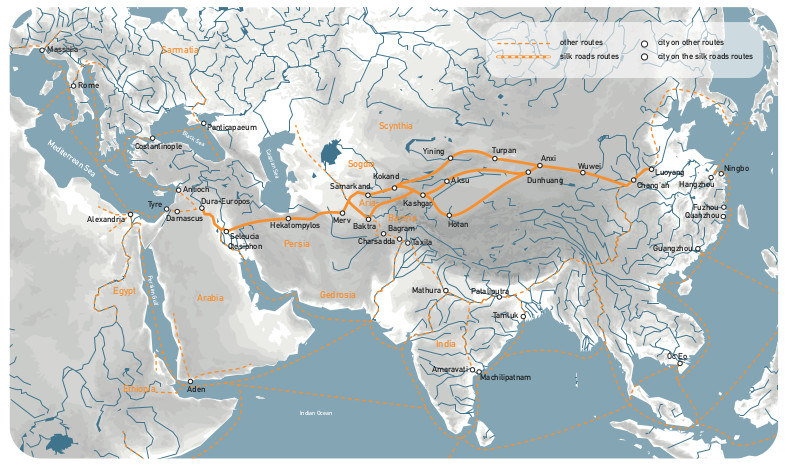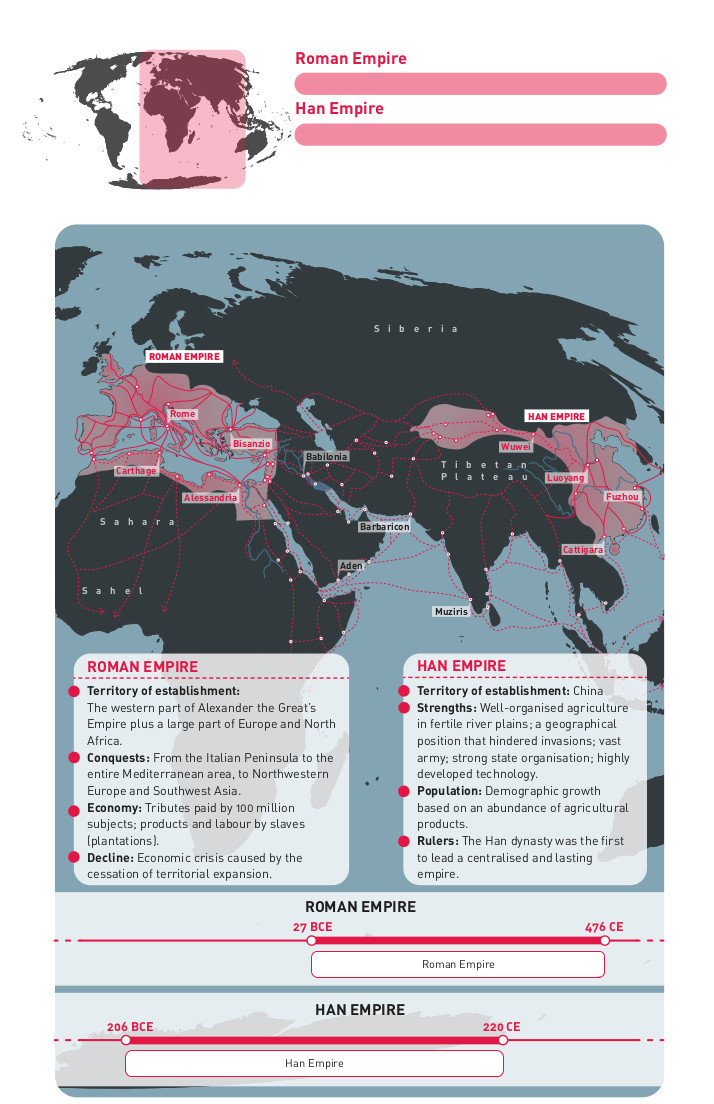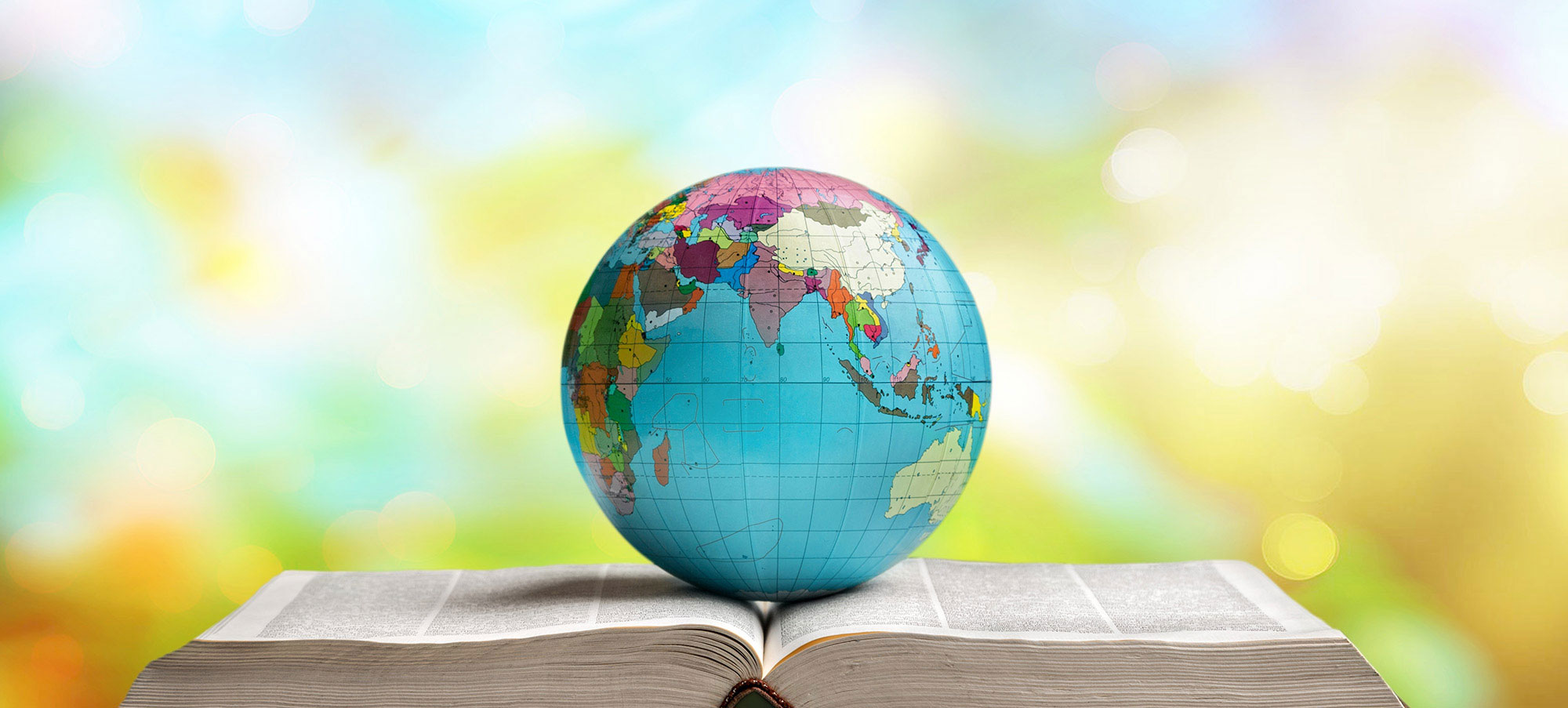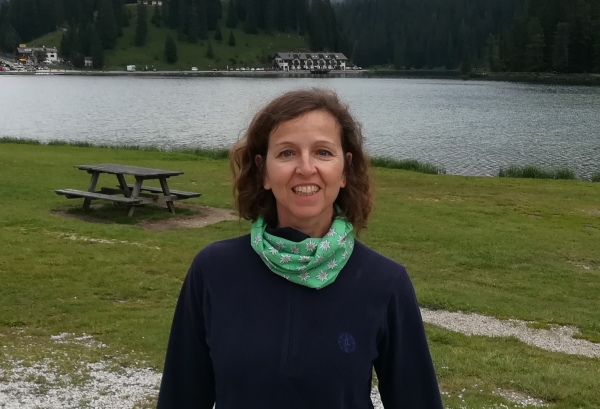Teacher, trainer and school editor for over twenty years, Anna Favalli is part of the team that created the Global Geohistory Manual just published as part of the Get Up and Goals! Project.
As well as the other educational resources of the project - all available for free download in 12 European languages - the manual is one of the tools proposed to have a classroom approach to Global Citizenship Education.
CLICK HERE TO DOWNLOAD THE GEO-HISTORY TEXTBOOK
We interviewed Anna to learn a little more about her role in the creation of this three-volume book designed to overcome the Eurocentric approach to the study of history in favour of a global vision. And we discovered how the flexibility with which the manual was conceived allows teachers and students to use some parts of it and move freely between the pages and activities depending on the interest, the didactic path chosen or the preferred learning objective.
Anna, what was your role in the drafting of the global geohistory manual?
I and Catia Brunelli have realized the Learning Units, that is all the didactic apparatus that is connected to the scientific text. We have carried out all the necessary research and written these units. The units foresee from 1 to 3 pages dedicated to student activities that start from an iconic or verbal document or both, or more documents, and engage students in an activity.
We have kept in mind the global citizenship indicators used by the project (for example, the ability to move from the local to the global scale) so that the objective could be the provision of education on global citizenship through the questioning of points of view, through decentralization, empathy, the ability to move between different times and places.
These are activities can be considered as stand-alone activities, in the sense that they can be done even separately from the text. They are not comprehension activities that relate directly to the text, but are placed in chapters and paragraphs that deal with those specific topics, so students are already encouraged to reflect and reason on those specific issues.
In addition to these full-page activities, we have also taken care of the glossary entries and smaller, more traditional comprehension activities positioned on the side of the text, always taking care to connect them with the present.
What do you think is the main strength of this book?
In my opinion, the strong point is the thematic approach, that is to involve and accompany students and teachers to work together, as they are supposed to do, and read history recognizing those thematic structures that are close to our present-day lives and therefore are of immediate interest. History is not a sequence of dates, names, distant or past events. My son often tells me "I don't like history because it's past, it's gone now". No, nothing could be further from the truth. In history, things have happened that concern areas of our lives that still make us feel good or bad today.
Gender or economic, political or international inequalities, or the way in which we handle the environment around us to take advantage of it and live in harmony with it without causing damage that then affects us: these are very topical things. They are our concern for our present and future life.
How would you define Global Citizenship Education in a few words?
I see it as a transversal subject concerning all areas of education. In other words, education must aim at training people. And people are citizens in the broadest sense. Not citizens of a state, but citizens of the world, people who live in the world.
Now at least let's keep this in mind. Today we have more global information tools, that make us really part of the world and we are so interconnected that we cannot afford to live as if we were not. Because whatever action we take radiates from us and has global repercussions, and then returns to us with all the effects it will have generated globally.
It's all an interweaving, a circle of relationships and actions and reactions, so it's important that boys and girls grow up with this idea of being part of a single world.
To me, being a citizen of the world means feeling part of this human family distributed all over the world, with all its diversities. And the best way to live well on this planet with others is to have this awareness in mind and act accordingly.
CLICK HERE TO DOWNLOAD THE GEO-HISTORY TEXTBOOK


-
Be involved!
Are you a student or teacher and would like to take part in Get Up and Goals!?
Follow us on Facebook, subscribe to our Newsletter, keep in touch and be part of our movement to reach the 17 SDGs and spread the Global Citizen Education!




